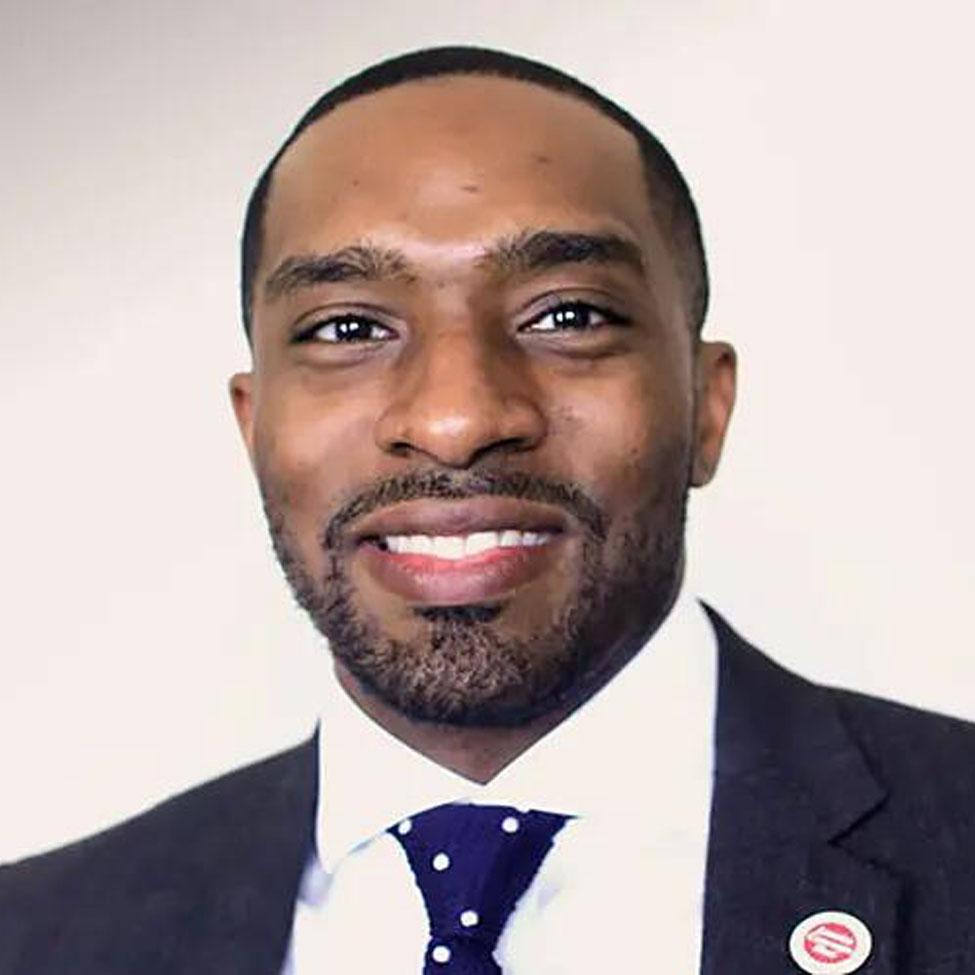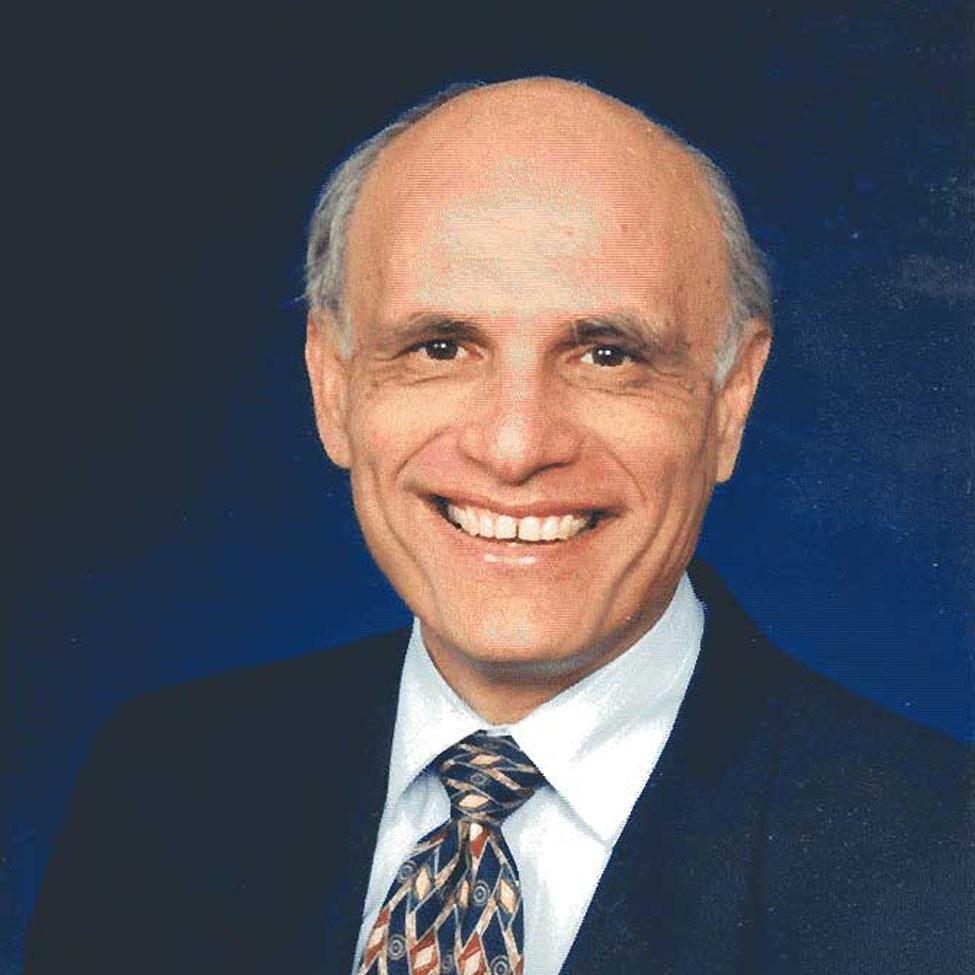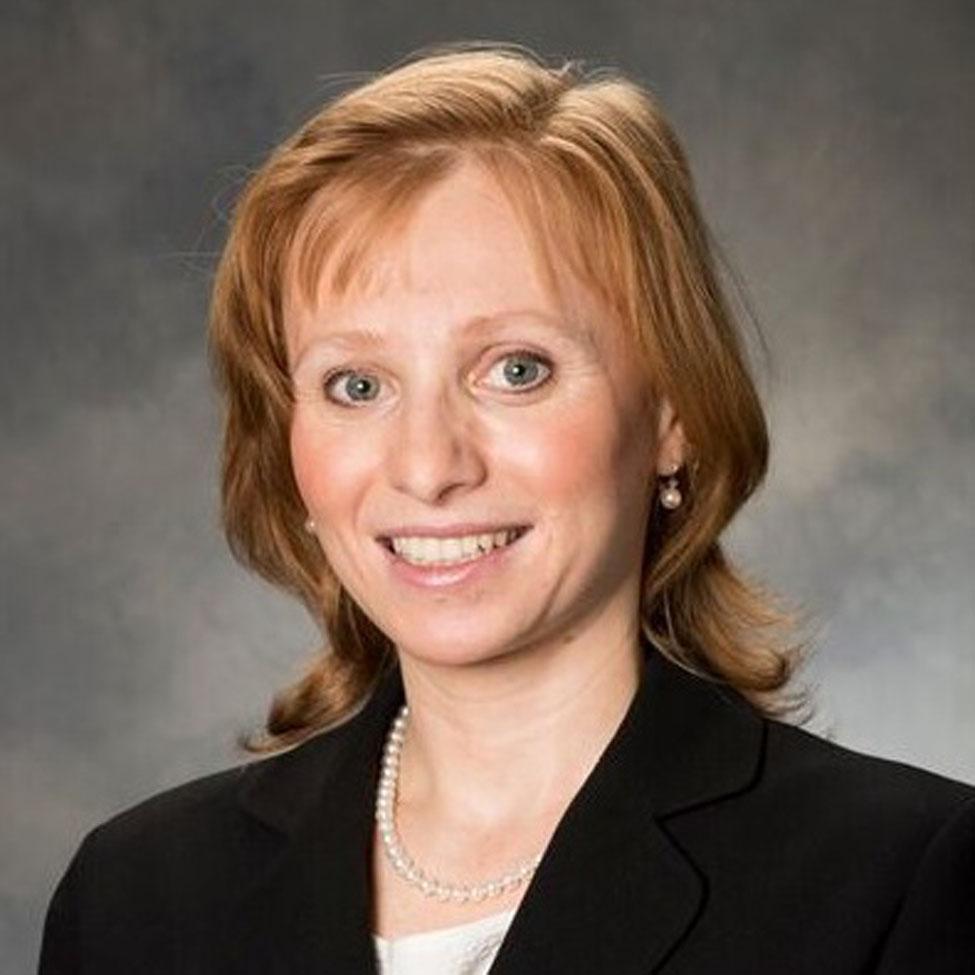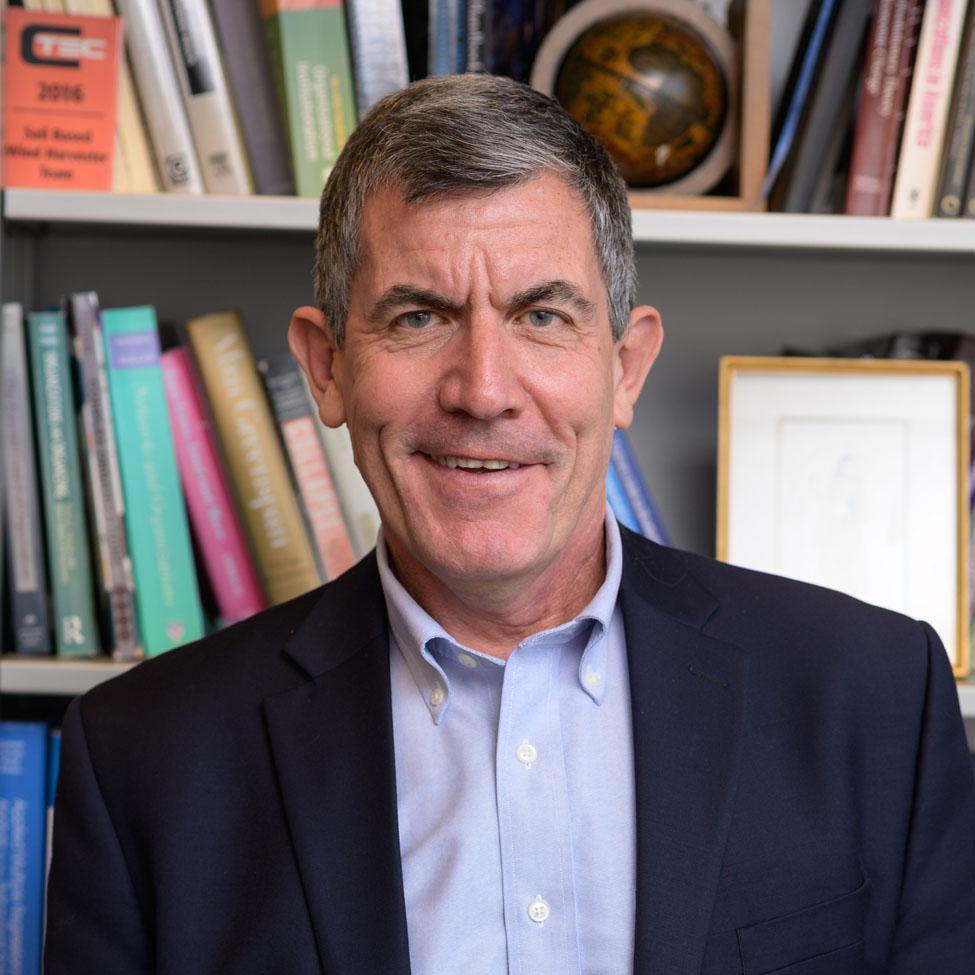
Spring 2023 Speakers
-
Image

Dr. Mark Rodgers is an Assistant Professor in the Supply Chain Management Department of the Rutgers Business School, where he currently teaches Lean Six Sigma, Demand Planning, and Operations Analysis courses at the undergraduate and graduate levels. His research interests include business process improvement, sustainability, power grid expansion planning, simulation-based optimization, and supply chain analytics. Dr. Rodgers holds a PhD in Industrial & Systems Engineering from Rutgers University, MS degrees in Statistics and Industrial & Systems Engineering from Rutgers University, a MEng in Pharmaceutical Manufacturing Practices from Stevens Institute of Technology, and a BS in Ceramics and Materials Science Engineering from Rutgers University. Additionally, he is a certified Six Sigma Black Belt. Prior to joining the Rutgers Business School's faculty, Dr. Rodgers worked in the telecommunications, pharmaceutical, transportation, and management consulting industries in various business process improvement and analytics roles.
Paper to be presented
Building Sustainable Supply Chains: Challenges, Strategies, and Case Studies (Mark Rodgers, Matthew Walsman, and Kevin Lyons)
Abstract
Sustainability is crucial in supply chain management, affecting various areas such as sourcing, production, logistics, and transportation. This talk emphasizes the importance of implementing sustainable practices, with a focus on future trends in the field. The Rutgers University single-stream recycling program is presented as a case study to illustrate the challenges faced by such initiatives, including contamination and high sorting costs. The Rutgers research team has developed a new recycling program to reduce costs and contamination, improving the sustainability and effectiveness of supply chain management practices. Implementing sustainable practices results in cost savings, increased efficiency, better quality, and an improved reputation, making it a necessary consideration for businesses in today's global landscape. Continuous monitoring and improvement are essential for the ongoing success of sustainable supply chain management practices.
-
Image

Roy Girasa has been a practicing attorney since 1962 and has taught in the Lubin School's department of Legal Studies and Taxation for the past 43 years. He holds the title of Distinguished Professor and has authored eight law texts (seven published by Palgrave Macmillan with two published in 2022), mainly concerning the law of finance, cyberlaw, and the latest technological advances and the regulation thereof. He has also authored over 135 articles.
Paper to be presented
Latest technological and regulatory trends in artificial intelligence (Roy Girasa)
Abstract
The development of artificial intelligence (AI) has escalated to a degree that most observers believed would take decades to accomplish. Since the last publication of the author's book on AI in 2020, there have been significant advancements in its applications such as in healthcare, military uses, cybersecurity, and, most recently, ChatGPT. We will discuss summarily the latest progressions of AI including how it is and will affect business and professions related thereto.
Fall 2022 Speakers
-
Image

Kam Chan is a Distinguished Professor and the Schaeberle Professor of Accounting at Pace University. He received Pace's Kenan Award for Teaching Excellence in 2014 and two outstanding reviewer awards from Emerald Publishing. Kam has published in premier research journals such as Accounting, Organizations, and Society; Auditing: A Journal of Practice and Theory; and Journal of Accounting and Economics. Others, including the Securities and Exchange Commission, highly cited his research. Journal articles published by the American Accounting Association ranked him as one of the most prolific and impactful researchers.
Paper to be presented
Earnings management of firms that deny PCAOB inspections (Kam Chan, Barbara R. Farrell, Picheng Lee, Annie Wong)
Abstract
There are about 168 US-listed firms from mainland China and Hong Kong, with a global market capitalization of approximately $1.5 trillion. The Sarbanes-Oxley Act of 2002 established the Public Company Accounting Oversight Board (PCAOB) to inspect the audit work of public accounting firms. However, auditors of US-listed Chinese firms did not allow PCAOB inspectors to review their working papers. The US Congress passed the Holding Foreign Companies Accountable Act (HFCAA) in 2020. Under HFCAA, Chinese firms could be delisted from US exchanges if their auditors have denied PCAOB inspections for three consecutive years. PCAOB and China's Ministry of Finance agreed in August 2022 to allow PCAOB to conduct the inspections in Hong Kong. PCAOB plans to release the first inspection report by the end of 2022.
The objective of this study is to examine if there was significant earnings management of Chinese firms that denied PCAOB inspections in the last five years. We use a variety of earnings management indicators, including discretionary accruals, Beneish M-score, and deviation from Benford's Law, in our analysis. The findings show weak evidence of earnings management among US-listed Chinese firms.
-
Image

"Wayfinding as Strategy Under the Conditions of Uncertainty"
Alina Bas, MA, PhD Candidate (ABD), is an organizational behavior researcher, strategy consultant, and an executive coach in private practice based in New York area. She coaches leaders in tech, healthcare, and financial industries on advancing under the conditions of uncertainty. Alina has extensive corporate experience in organizational and leadership development and has presented in front of audiences at the Academy of Management, Google, Facebook, US Army War College, MIT Sloan, and The Garrison Institute. Her clients are changing the world in organizations including Facebook, Amazon, Google, Microsoft, Oracle, the United Nations, Credit Suisse, and the American Council on Education. Alina holds a master's degree in Industrial/Organizational Psychology from NYU, a bachelor's degree in Psychology from Brandeis University, and she is currently pursuing a PhD at the University of Strathclyde Business School. Her research is focused on strategy under the conditions of uncertainty; other areas of interest include extreme context, sensory-based knowledge, and intuition use by analytically educated knowledge workers. Alina is the author of a book Intuition for Skeptics; the co-author of a paper on the role of sensing in management learning published in Management Learning; and she has written three book chapters and numerous conference papers.
Brief summary:
This talk is based on a study exploring the way knowledge workers 'advance' (i.e. move purposefully to progress) under the conditions of uncertainty, where there is insufficient, incomplete or unreliable data, or there is too much data to sufficiently consider in a timely manner. As a result of the study, Knightian uncertainty is conceptualized as a ubiquitous and pervasive environment rather than a bounded condition, and extreme context is framed as a specific case of uncertainty, compounded by factors - such as failure of existing protocols and loss of trust in recognized authority figures. Wayfinding ('knowing as we go') rather than navigating ('knowing before we go') (Ingold, 2000) emerged as a dominant, necessary, and legitimate strategy for advancing in extreme context.
-
Image

"Building credible commitment via director interlocks: Evidence from the supply chain"
Rebecca Hann received her Masters and PhD degrees from the Wharton School of the University of Pennsylvania. Her research examines issues surrounding the role of accounting information in capital markets, standard setting, supply chains, and labor markets at the micro and macro levels. Her research has been published in leading accounting and finance journals, including The Accounting Review, Contemporary Accounting Research, the Journal of Accounting and Economics, the Journal of Accounting Research, the Journal of Finance, and the Review of Accounting Studies. She is an editorial board member of The Accounting Review.
Hann is an award-winning teacher having taught in the Smith School's MBA, EMBA and PhD programs. She is a recipient of the Distinguished Teaching Award, the Most Effective Core Professor Award, and the Krowe Award for Teaching Excellence. She is currently the Assistant Dean of Doctoral Programs at Smith and she has advised over a dozen doctoral students, who are now faculty members at universities around the world, including the Hong Kong University of Science and Technology, Singapore Management University, and the University of Michigan. She has received the American Accounting Association's Best Dissertation Supervision Award and the Smith PhD Program Faculty Mentor of the Year Award.
Paper to be presented
Building Credible Commitments via Director Interlocks: Evidence from the Supply Chain (PDF) (Rebecca N. Hann, Musa Subasi, Yue Zheng)
Spring 2022 Speakers
Note: Some research papers require Pace University credentials to download.
-
Image

Julia Eisenberg is an Associate Professor in the Management and Management Science Department. Her research interests include leadership, innovation, knowledge sharing, and collaboration among geographically distributed individuals and teams. Prior to academia, she spent over 10 years in the financial industry, having worked as a product developer and a manager in the technology and the finance divisions. Julia has published articles in journals including the Journal of International Management, Human Resources Management Review Journal, Small Group Research Journal, Journal of Computer-Mediated Communication, and Organizational Management Journal.
-
Image

"The SEC's Short-Sale Experiment: Causal Channels and Specification Choice"
Bernard Black is Nicholas D. Chabraja Professor at Northwestern University, with positions in the Pritzker School of Law, the Kellogg School of Management, Department of Finance, and the Institute for Policy Research. His research areas include health policy and medical malpractice, empirical methods for causal inference, law and finance, and international corporate governance. Recent book: Medical Malpractice Litigation: How It Works; Why Tort Reform Hasn't Helped (Cato Institute 2021, with David Hyman, Myungho Paik, William Sage, and Charles Silver). He is the founding Chairman of the annual Conference on Empirical Legal Studies (2006-2016), a founding editor of the Journal of Law, Finance and Accounting, and has run, since 2010, an annual summer workshop at Northwestern. He is among the leading empirical legal scholars in the U.S., with over 150 published articles and over 31,000 citations on Google Scholar.
Paper to be presented
- The SEC's Short-Sale Experiment: Evidence on Causal Channels and on the Importance of Specification Choice in Randomized and Natural Experiments (PDF) (Bernard S. Black, Hemang Desai, Kate Litvak, Woongsun Yoo, Jeff Jiewei Yu)
-
Iftekhar Hasan is a faculty member at the Gabelli School of Business of Fordham University. His research interests are in the areas of financial institutions, corporate finance, capital markets, and emerging economies focusing on interdisciplinary questions and public policy issues. He has published extensively in academic journals in several fields. He has been proudly involved in developing scores of Ph.D. students and junior scholars and educators across institutions and countries throughout his career. The above and his humble yet significant ongoing academic involvements globally are his key academic achievements and source of contentment as an academic colleague.
Paper to be presented
- Banking Competition and Mortality Inequality (Iftekhar Hasanm, Thomas Krause, Stefano Manfredonia, Felix Noth)
-
Image

Ted spent the first 20 years of his adult life helping to build a variety of technology-rich entrepreneurial ventures. He holds the George F. Farris Chair in Entrepreneurship at Rutgers Business School, while serving as founding director of the Rutgers Advanced Institute for the Study of Entrepreneurship and Development (RAISED). He also works at the University of Cape Town. Ted's research explores entrepreneurship under conditions of resource constraint and adversity, focusing on sources and patterns of resourceful behavior. His most influential work continues to develop the notion of "entrepreneurial bricolage." His work on Founder Identity Theory (FIT)—with Erin Powell and PhD students in the US, South Korea and South Africa—complements this by drawing on the social psychology of identity to explore entrepreneur's strategic responses to resource constraint and adversity. A series of books and papers with Friederike Welter introduce the Critical Process Approach to contextualizing entrepreneurship research.
Paper to be presented
- When is Less More? Boundary Conditions of Effective Entrepreneurial Bricolage (PDF) (Paul Richard Steffens, Ted Baker, Per Davidsson, Julienne Marie Senyard)
Abstract
While prior research suggests that entrepreneurial bricolage is often useful as a coping mechanism for resource-constrained new ventures, other accounts document detrimental effects of bricolage. As the conditions for effective bricolage have not been systematically examined in prior research, we develop and test theoretical explanations for some important boundary conditions. We propose that while bricolage has a positive influence through a resource replacement mechanism, it may be detrimental through the intertwined "second-best solutions" and "tinkering trap" which together lead to an accumulation of compromises that may result in a detrimental path dependence. We hypothesize that the intensity of these counteracting mechanisms differs depending on the venture's stage of development (nascent vs. operational) and its level of growth expectations. In essence, we argue that ventures expecting to achieve more derive greater benefit from resource replacement. In addition, they are more likely to resist an accumulation of compromises. We test our hypotheses using a longitudinal study of early-stage ventures. Although the results mostly support our theory, they also point to one interesting surprise for which we extend our theorizing to propose an explanation. Counter to the prevailing view in the literature, we find that bricolage is particularly effective for developing competitiveness for early-stage ventures striving to develop and grow. Complementing this, our results suggest the net effects of bricolage may actually be detrimental to the competitiveness of operational ventures that are not actively trying to grow.
